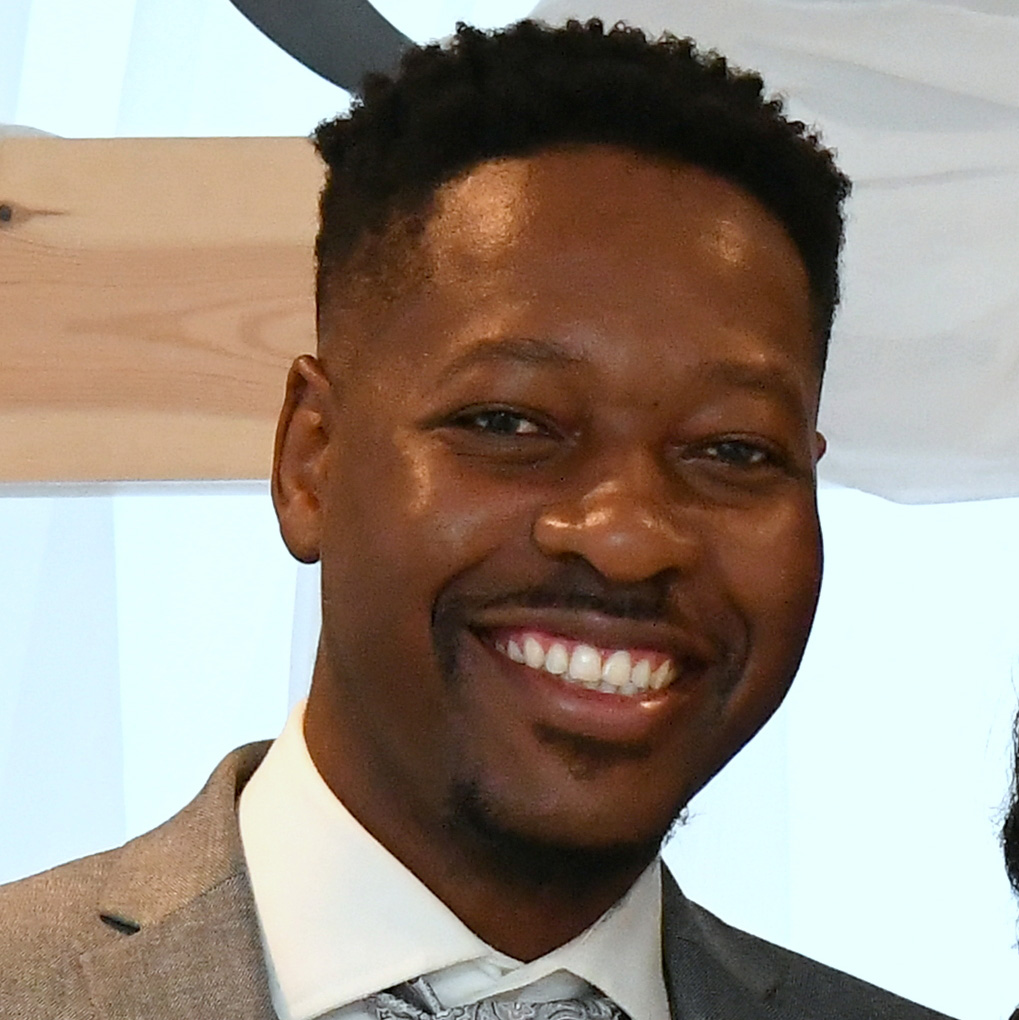Discontent happens as a result of being stimulated or inspired to make a change. Every situation is different, but it will always manifest as an agitation to move and brood. Brooding happens when we do not accept whatever the ‘current’ is as good. We are therefore given a choice to redefine the present circumstances, for better or for worse, to become what we have objectively decided is good. The Hebrew word rhp which means brood , also means hover, shake, flutter or stay in place and watch over.. This very word is used right at the beginning of scripture when God created the heavens and the earth. The word tells us that His spirit brooded over creation and from there, He began to reshape what was formless , removing the emptiness in the void to introduce what He declared as good. Six times God made a change , five times God declared his creation good with each iteration, until His penultimate creation, Man who He defined as ‘very good’ or exceedingly good. And when God was done, no longer discontent with what had been, He rested (Genesis 1).
You shall surely die: Being aware of patterns
We are this creation he called ‘very good’, made in the image of God, to have dominion over all things. We were created and given purpose, to work and keep God’s creation. He said we were very good, walking with and abiding in what God instructed us. God provided and allowed us every good thing by decree (Genesis 2:16), there was no doubt, no discontent, just the love and trust that was from the beginning. This was until a voice of doubt planted a seed that caused us to hover, to brood, to question and inevitably fall because of covetousness. God gave us access to everything in the garden, to use as we delighted, yet because our focus momentarily went on the only thing which we did not have access to, ironically, this culminated in us losing what we already did have.
Discontent causes us to feel like this all the time as people. Brooding over what we do not possess sometimes makes us neglect what we are already stewards of, leading to loss of perspective and a death of relationships, initiatives and dreams (Genesis 2:17). Many times as people we are looking outwardly for something more because we are not content with what we already have. It doesn’t matter where we are in life, we seem to be reaching out for that extra something that could position us in a greener place, that promotion, that raise, that friend, that house, that spouse. We might be seeking something that would give us that competitive edge over someone else. Whatever the reason , we all struggle periodically with accepting what we have as being enough at one point or the other.
I have a very close friend of many years who has worked really hard in his career and year after year he does so well at his work that he gets a raise and bonuses. He is so integral that even when he is on holiday some senior work colleagues will text him to ask him for advice on his area of work. He was content and enthusiastic at work, staying on after work hours for socials and just to get more work done and he got a lot of plaudits for it. He gained so much influence over the years that he started getting asked to do more outside of the remit of his contract which he did. However over time he became discontent because of all the extra work he seemingly had to do for free that he started brooding and murmuring. This was because as his friends we were seeing him less and less and when we asked him about it, it turned out it was because of the pressures at work. So what he used to celebrate and boast about had supposedly become a yoke on his neck. He loved the praise, loved the raises and remuneration, but was discontent that he was not given the title to match. As he began to act out his discontentedness the company seemed to pick up on it and because he was so valuable, they made room for him in a more senior position. The more senior position came with demands which made it less flexible for him because now he was bound by contract to do the things he had once done out of willingness. This also meant he couldn’t say no to those things if he felt he was overloaded. His discontent gave him what he wanted, but unfortunately it did not satisfy what he really needed. Interestingly though he is now always complaining about his job, he is also telling us he is about to be promoted again, which will mean more pressure, and possibly more discontent about the things he will no longer have time to do outside of what freely filling the next application for promotion entails.
Peace, be still: Calming the storm of discontent
Looking inwards always causes people to focus on acquisition. Acquiring knowledge, or power, or influence or money gives a sense of security though our own works and endeavours. It brings a sense of accomplishment and that can be very addictive if we have that personality. We would start to horde wealth, consolidate influence and move in a general direction which is self centred and to an extent quite self absorbed. Don’t get me wrong, I believe in doing your best and being prepared. God says cursed is the man who sacrifices a blemished offering when he has in his flock a worthy one (Malachi 1:14). Doing your best always counts for something. Putting your best foot forward is the way to go. But in all things we are taught to do what we do for the glory of God. That means keeping ourselves in check while we achieve so as to not become puffed up with pride (Mark 8:15) .
Jesus addressed our yearning for security (Matthew 6:19-21). He talks about our charitable nature and wealth. He reminds us that the Father is willing and able to provide for us if we seek Him first. Do not lay up treasures for yourselves where moth and rust destroy.I remember when in 2019 the Covid pandemic hit the world. In March 2020, as people were going into lockdown there was a great panic in everyone, leading to holding and emptying of shops due to over buying by some people. This was induced by a lack of confidence and insecurity. No-one knew what would happen the days coming so each person who had the power tried to consolidate for themselves whatever semblance of security they could. People busied themselves with buying cans of food and imperishables in an effort to hunker down and wait it out. Everything you saw on TV and on the internet was showing insecurity. But there were also those who prayed and steadied themselves and proceeded as if they did not see the chaos that was around them.
David says even the darkness is not dark to you; the night is bright as the day, for darkness is as light with you (Psalm 139:12). None of what happened was a surprise to God. He was not surprised when the pandemic hit. He is omniscient and knows all things at all times, so when humanity was panicked, God was still sovereign. David’s ability to allow God to move and take over in his life when things overwhelm him is the reason he became successful, because he would choose not to do things in his own strength and that directly correlated with victory over his circumstances. He was content putting his ego and self in check , diminishing himself so that God would have preeminence in his life. God established David because David established the sovereignty of God over his own life. So God had a vested interest in the success of David , and He has a vested interest in the success and establishment of all his children, because He has purposed it for His glory (2 Corinthians 1:20).
In my view the asking that we do unto God has to fulfil a need, not a want which could devolve into gluttony. Jesus tells us to ask for what we need (Matthew 7:7-11). While thinking on being content in every season I was trying to reconcile that notion with the word which tells us to ask so as to receive. If we are to be content surely there would be no need to ask, especially given that God already knows what we need. Does that mean then that asking is a lack of faith, or rather does it show a step in it. Asking can mean we are feeding off God’s faithfulness which is rooted in what God has already shown to us by previous responses to us (Joshua 10:12–14). So if we ask in response to understanding that God is faithful, then it becomes the show of our trust and faith in God’s ability to keep His word. On the other hand asking can mean the opposite, where we are insecure and not trusting that God will deliver what He has declared for us in due time. We ask and will things to happen in our time, so we ask again and again in accordance to our will and not His. In the end we take matters into our own hands and do them in our own strength, which might end up causing us more issues than we bargained for (1 Samuel 15:22–23).
On the converse of this we could also ask repeatedly as the example before, but instead of doing things in our own strength when we are dissatisfied with God’s timing, we wait on him. Though we continue to ask repeatedly in the hope that he is faithful, we await His judgement until He gives it (Luke 18:1–8). In essence, I guess I am calling us to be content in God’s perspective. This is the illustration that David has painted through countless Psalms about the provision of God. Contentment is a spiritual condition because you have to wrestle control for it with your flesh. The desires of the spirit are indeed contrary to those of the flesh, so the flesh will desire more than we need. The tenth commandment is the most difficult for all of us to fulfil because it is subject to each individual and their heart (Exodus 20:17). And while I understand that my works will not save me, I know that getting to grips with my covetous nature is important to restraining my flesh in all things.
David tells us to be content because we already have the provider of all that we need (Psalm 23:1). David was well positioned to declare this because he suffered from the same issue of covetousness (2 Samuel 11:2–4). Paul tells us that if God hadn’t revealed to us that discontentment was an issue, we would have been happy to keep craving things we had no business even looking at (Romans 7:7–8). So David addresses it by making a declaration, and admonishing his flesh.
He declares that the Lord is his shepherd. He is reminding himself of when he was a shepherd, when he did every good thing for his flock while tending his father’s sheep. How he would protect them and provide them with good pastures and lead them to cool refreshing water. He taps into what he knows because that’s the best way he can pull himself together. He remembers the lions and the wild animals who would try to attack his sheep, and how as the shepherd he was moved to defend their position, and go after his lost lambs. His sheep, as far as David could now visualise, had everything they needed. But his sheep were sheep, so they would do sheep things. Like walk off unaware of danger because they wanted to, or stray to a neighbouring pasture because it looked greener because they wanted to, or follow the scent of an ewe in season from another flock because they wanted to. The sheep had a problem with discontentment, they wanted more, yet they had everything they needed. So David sees himself in the sheep and decides that he will not be like them. He declares that IF the Lord is his shepherd, he shall not want. He makes a declaration to entrust himself to his shepherd who has never led him wrong. He, like Paul, declares to align with God’s will and follow his shepherd in contentment(2 Corinthians 10:5–6).
Who told you you were naked:
Adam had to deal with the knowledge that he was exposed. Disobedience led to an awareness of vulnerability. We deal with this daily and it’s about taking responsibility. In the beginning discontent manifested as a result of the voice that held sway over the man, which was not the voice of his Creator. Have you questioned why there is discontent in you when you face it? Just as the law shows us our sin, awareness brings us to a place of clarity (Proverbs 4:7). If we are aware, we know what we need to take to the Lord those things about ourselves that need to be purged and crucified. Adam ran and hid , he heard his Father’s voice, like a child who steals sugar runs from their mother, to hide the thing that has exposed us all. Sin, specifically covetousness. But how can we hide from God (Psalm 139:7)? He knows where we are, He knows what we have done, so why not go to him because you are realising that you are naked? Would it surprise you that He already knew that too? Repentance is a key part of growing and getting closer to God. Be content in the knowledge that He knows us, He loves us, and He cares for us. Seek him first and other things will be added unto you, do not seek the things that might just show your nakedness. David says I shall not want, I truly believe that we shouldn’t either .



Leave a Reply